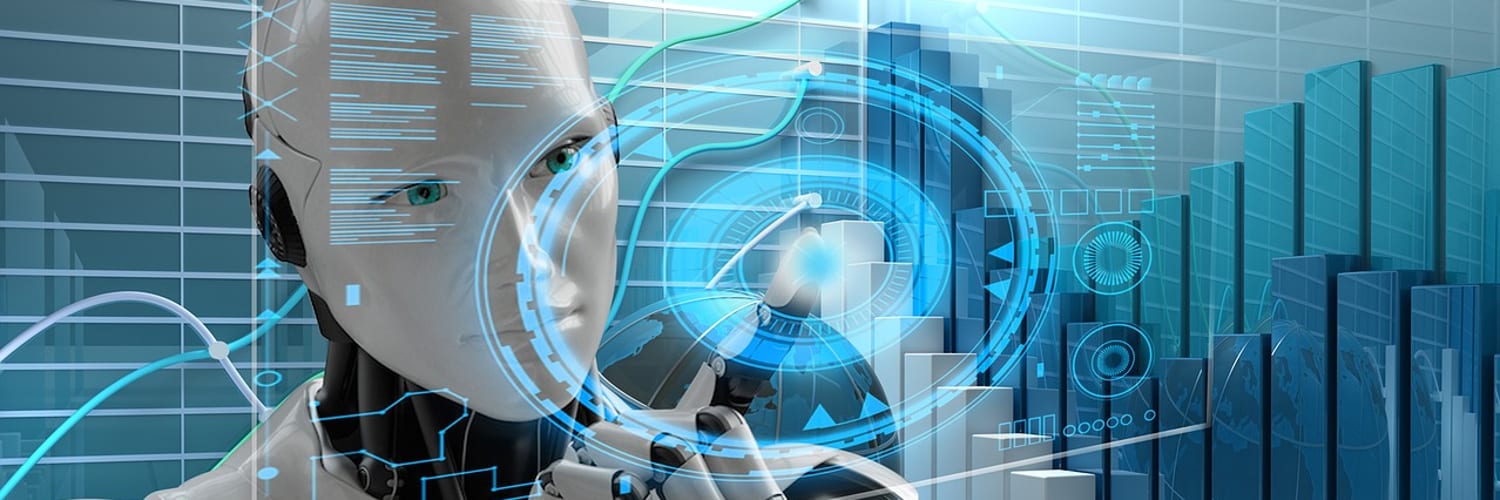Artificial intelligence is at the heart of every debate.
Companies and governments alike are acquiring substantial resources to stay in the running against the American and Chinese giants. In France, the release of the Villani report on 28 March 2018, followed by the government’s announcement of a 1.5 billion euro plan, illustrates this point perfectly. We can already see the effects of AI on a certain number of products and services (such as diagnostics, research, etc.) and professions (call centre employees, cleaners, etc.) – but what about the management and leadership professions? According to the McKinsey report, “Where machines could replace humans – and where they can’t (yet)”, people management is the job least likely to be entrusted to machines in the near future. However it seems unlikely that managers will be completely spared the major adaptive wave generated by the advent of AI. The French Air Force, often a pioneer in the field of management, entitled its last annual conference “Heroism in the AI era”. In so doing, it raised crucial questions about the factors that will continue to make humans preferable to machines in the future. Like the military world, shouldn’t we also be asking ourselves whether the manager of tomorrow will be a machine?
The manager’s humanity
The answer to this question may depend on the type of management being discussed. If we are talking about the 20th century management 2.0 model where the manager essentially acts as a relay for the hierarchy, primarily undertaking control and reporting tasks, then the question of the value added by the manager compared with AI definitely arises. The general level of dissatisfaction is well known – French employees are among the most critical in Europe in terms of their relationships with their managers. Most consider the annual performance review process to be pointless and unfair. Although a manager’s humanity may sometimes be criticised in evaluations (being equated with a lack of objectivity or courage), its absence is also lamented – the human relationship is often lacking in managerial relationships, which are considered cold and impersonal. So, one way or another, the manager’s humanity poses a problem. And it is a machine’s ability to respond to this challenge that should give us pause for thought. Given the progress of AI, a machine may very soon be able to recall the rules, give feedback on the objectives defined upstream and be totally objective in its evaluation at the end of the year. Under these conditions, machines could very likely replace managers in the near future.
On the other hand, if we are talking about the management 3.0 model, built around a manager’s ability to strengthen his or her employees’ skills and provide them with sufficient autonomy and meaning so that they feel free to innovate, then the diagnosis is different. Giving meaning and autonomy necessarily requires a human relationship of sufficient quality. In other words, managers who meet the challenges of the 21st century are those invest sufficiently in their relationship with their employees, even if this means being challenged on an emotional level. Although these managers may sometimes be disadvantaged by their humanity (they experience negative emotions, they may sometimes feel lost in the human challenges they face, etc.), it is precisely for this reason that it will be difficult to replace them with machines. Emotional intelligence, the quality expected of 21st century managers and executives, is also the factor that will enable them to add more value than a machine, however humanised it may be.
The augmented manager
So what is the future for managers and machines? AI could prove to be a considerable asset if it allows managers to free up as much of their attention as possible to focus on their relationships with their colleagues and on their own strategic reflections. In this case, the manager will be enhanced, or “augmented”, by the machine. AI may therefore be a useful asset enabling managers to offload certain low-value-added activities and recapture thinking time for other more strategic activities. Two ways of using AI are particularly interesting from this point of view:
- Automating tasks with low human value added – such as reporting, responding to certain e-mails, planning, organisation or analysing data and identifying trends – in order to free up time and additional resources to focus on key projects such as strategic planning and people management; and
- Putting human relationships and collectivity at the heart of the role of manager. In other words, AI can be used to build a solid and secure collective action framework for teams by setting up formal and informal spaces for discussion and exchange. The idea is also that the manager supports his or her colleagues in their use of AI so that they in turn can take a step back and spend more time with their own teams to encourage innovation or work on the strategic projects they are responsible for. It will be crucial for managers to demonstrate their exemplary use of AI to create a more humane style of management.
The arrival of AI is inevitable, and managers have every interest in embracing it. However, they must adopt management 3.0 skills or they will find themselves easily replaceable by machines. Although AI has not yet overturned management codes, it won’t be long before it triggers the obsolescence of management 2.0 skills.

As Professor of management and organisational behaviour, my research essentially focuses on the influence of perceptions of fairness and exemplary behaviour on the cooperation of employees during periods of drastic change, as well as collective behaviour in extreme situations. My work on the reaction of employees during mergers and acquisitions earned me the 2013 Syntec academic prize in management research. I often work with companies on the question of management relationships and the human aspect of change management.
More information on Tessa Melkonian:
• Her CV online
• Her Viadeo page
• Her ResearchGate Page
Further reading…
- Chui M., Manyika J., & Miremadi M. (2016). Where machines could replace humans – and where they can’t (yet). McKinsey Quarterly, July 2016.
Read article online


Recent Comments